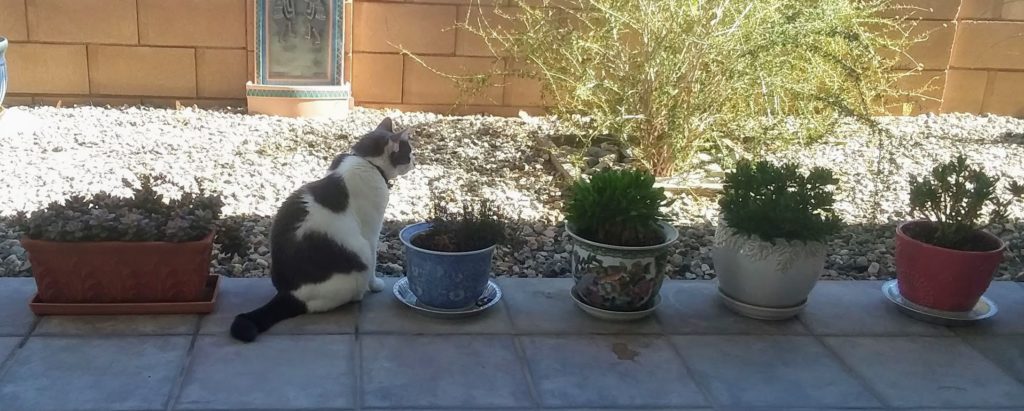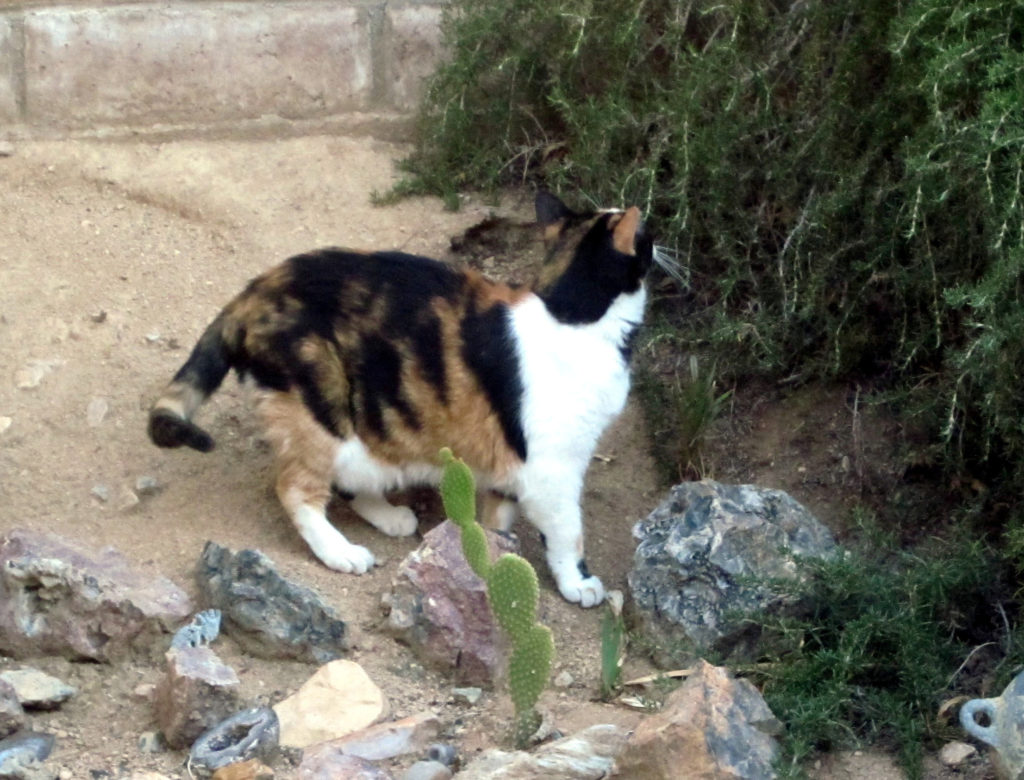The bathtub belongs to my cat. I am no longer allowed to use it. Lucky for me I also have a shower. Phew.
Someday I will learn to take video in landscape mode. Today is not that day.
The bathtub belongs to my cat. I am no longer allowed to use it. Lucky for me I also have a shower. Phew.
Someday I will learn to take video in landscape mode. Today is not that day.
Here is a picture of my cat:

That sounds like a translation challenge! In Kenda Soro:
My cat DC had to be put down early last month. She was 18 years old.
DC arrived in my life in October 2000 as a 6-month old kitten rescued from a humane trap in the cemetary. My goddaughter and her friend rescued her and brought her to me on the grounds that I had only 1 pet and they each had 3-4 in their households. My goddaughter named her DC for “dazed and confused”, though as she adapted to her new life it quickly became “demanding and complaining” as befits a pampered house cat.
In October 2011 I moved with her into mom’s house in the desert, and she adjusted to that very nicely. Mom was all “but my white couch…” and in less than a week “what an excellent cat!” DC especially liked going out into the garden and hunting for lizards. She rarely caught them, but would hang out under the rosemary bush for hours waiting for them. That is where her ashes are now.

https://kelen.conlang.org/archives/category/cats has pictures of her going back to 2009.
The next three sentences in Gary’s list have kittens:
I have to confess that as much as I love cats, the Kēleni don’t have them. 🙁 I have not yet decided if the people who speak sodna-lɛni have cats as pets, but I think they will, by fiat. Even if it ends up not making sense. OK, so a word for cat and for kitten. Class II with the other animals….
idɛl for ‘cat’ and iddɨse for ‘kitten’. Those are motile singular forms.
Jumping is motion upwards, using tɨŋi.
15. iddɨse otni olaya.
16. iddɨse otni tɛbɛ olaya.
tɛbɛ ‘table’ is the destination. Destinations are always sessile.
17. leneya iddɨse ɨsa pɛstɛ.
In sodna-lɛni one would only specify ‘my’ in contrast with ‘yours’ or ‘his/hers’ or such. So I left it out of 17. And we have a third verb: pɛsi which means to move away from a required source. Since source is grammatically required, I added one, making “The little kitten moved away from me.” And it is in the sessile to denote that I didn’t send the kitten away. I am just another location in this sentence. Sources in previous sentences were motile, implying a degree of agency.
In Kēlen, using tūmse for the pet:
15. ñamma jatūmse rajōl;
16. ñamma jatūmse ra jatēwa ōl;
17. ñamma jatūmse rūjapēxa;